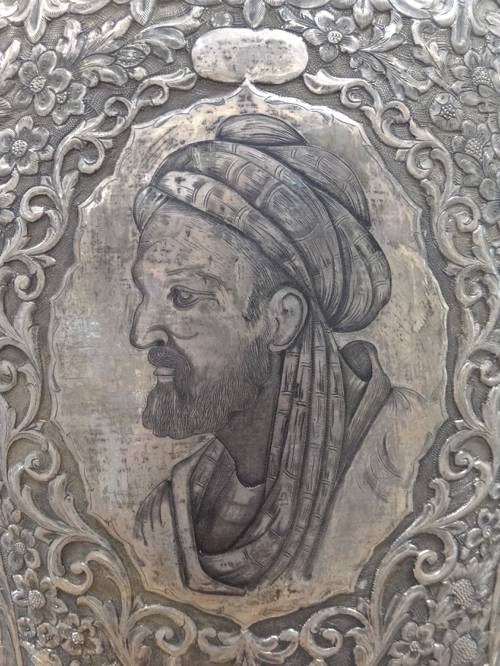
FAQ About Avicenna (Ibn Sina)

Who was Avicenna?
Avicenna, also known as Ibn Sina, was a Persian polymath born in 980 AD in present-day Uzbekistan. He is renowned for his influential works in philosophy and medicine during the Islamic Golden Age. His most notable writings include 'The Book of Healing,' a comprehensive scientific and philosophical encyclopedia, and 'The Canon of Medicine,' a standard medical text in both the Muslim world and Europe for several centuries.

What is 'The Canon of Medicine'?
'The Canon of Medicine' is one of Avicenna's most famous works. It is a five-volume medical encyclopedia that compiled and systematized all the medical knowledge available at the time. It covered topics such as diagnostic procedures, pharmacology, and therapeutic practices. This book was used as a standard medical textbook in Islamic and European educational institutions well into the 17th century.

Why is Avicenna considered a polymath?
Avicenna is considered a polymath because of his extensive contributions to various fields such as philosophy, medicine, astronomy, mathematics, and alchemy. His ability to integrate knowledge across disciplines and make groundbreaking contributions that influenced both Islamic and Western scholars showcases his extraordinary breadth of expertise.

What impact did Avicenna have on Western medicine?
Avicenna's impact on Western medicine was profound, primarily through his book 'The Canon of Medicine.' This work was used as a principal medical text at many medieval universities in Europe along with being referenced for its organizational structure and clinical insights. His emphasis on systematic experimentation and rationalism laid foundational concepts for modern medicine.

How did Avicenna influence philosophy?
Avicenna's influence on philosophy is mainly through his integration of Greek philosophical concepts, especially those of Aristotle and Plato, with Islamic theology. His work on metaphysics in 'The Book of Healing' influenced great Western philosophers like Thomas Aquinas, as well as future Islamic philosophers. He explored topics such as the existence and nature of god, the soul, and the process of knowledge attainment.

Where was Avicenna born?
Avicenna was born in Afshana, a village near Bukhara, which is present-day Uzbekistan, in 980 AD. Bukhara was part of the Samanid Empire at that time, which was known for being a center of learning and culture.

What are Avicenna's contributions to pharmacology?
In 'The Canon of Medicine,' Avicenna provided detailed descriptions of over 760 drugs, their uses, effects, and preparations. He emphasized the importance of dosages and combined theory with practical pharmaceutical applications, influencing the development and standardization of pharmacology in both Islamic and Western medicine.

What is 'The Book of Healing'?
'The Book of Healing' is an extensive scientific and philosophical encyclopedia written by Avicenna. It covers a wide range of subjects including logic, natural sciences, psychology, geometry, astronomy, and metaphysics. The book aimed to offer a comprehensive understanding of human intellectual development and the natural world.

What languages were Avicenna's works translated into?
Avicenna's works were originally written in Arabic. They were later translated into Latin in the medieval period, thereby becoming widely accessible to the Western world. These translations played a crucial role in the transmission of knowledge from the Islamic world to medieval Europe.

When did Avicenna live?
Avicenna lived from 980 to 1037 AD. His lifetime coincided with the Islamic Golden Age, a period marked by significant advancements in science, culture, and technology within the Islamic world.

How did Avicenna die?
Avicenna died in Hamadan, in present-day Iran, in 1037 AD. It is traditionally believed that he died due to complications from a colic disease, which he reportedly tried to treat himself for, but it led to his decline.

What are some well-known philosophical concepts of Avicenna?
Avicenna is known for several philosophical concepts, including the distinction between essence and existence, the argument for the necessity of a first cause, and his ideas on the human soul and intellect. His works laid the groundwork for later medieval scholasticism and Islamic philosophy.

How did Avicenna contribute to psychology?
Avicenna made significant contributions to the field of psychology, including the study of theories related to perception, cognition, and the mind. He proposed that the mind could affect physical health, a visionary idea that prefigures modern psychosomatic medicine.

What was Avicenna's approach to medicine?
Avicenna's approach to medicine was systematic and empirical. He emphasized the importance of diagnosis, prognosis, and treatment based on scientific observation and provided detailed descriptions of diseases and their treatments. His medical methodology influenced medical practices for many centuries.

What is Avicenna's legacy?
Avicenna's legacy is vast and multifaceted, spanning the realms of medicine, philosophy, and science. His works influenced both the Islamic world and Western societies, bridging cultures and enhancing the development of knowledge. His texts continued to be referenced and respected throughout history, marking his lasting impact on various fields of study.

Did Avicenna write about astronomy?
Yes, Avicenna wrote about astronomy among other sciences. In his writings, he addressed celestial phenomena and planetary motions, incorporating and expanding upon the Ptolemaic system. His work contributed to Islamic astronomical studies and influenced later European astronomers.

How was Avicenna involved in mathematics?
Avicenna contributed to mathematics, particularly in the fields of geometry and arithmetic. His work often intersected with his philosophical inquiries, where he dealt with the mathematical aspects of relationships and metaphysical concepts. While not primarily a mathematician, his efforts helped further the mathematical sciences during his time.

What educational background did Avicenna have?
Avicenna had an impressively diverse educational background. He mastered the Quran by age ten and went on to study a range of subjects including logic, philosophy, and natural sciences with various teachers. His extensive self-study allowed him to become a court physician by age 18 after healing the Samanid ruler.

How did Avicenna influence European universities?
Avicenna's influence on European universities was predominantly through his texts 'The Canon of Medicine' and 'The Book of Healing,' which became core curricula in the medical and philosophical faculties of these institutions. His systematic methods and rational approaches shaped the foundational structures of European academic thought.

What role did Avicenna play in the Islamic Golden Age?
During the Islamic Golden Age, Avicenna played a pivotal role as one of its most eminent scholars. He was crucial in synthesizing Greek philosophy with Islamic thought, advancing medical knowledge, and influencing a wide array of scientific and cultural fields. His works symbolize the height of intellectual achievement during this period.
